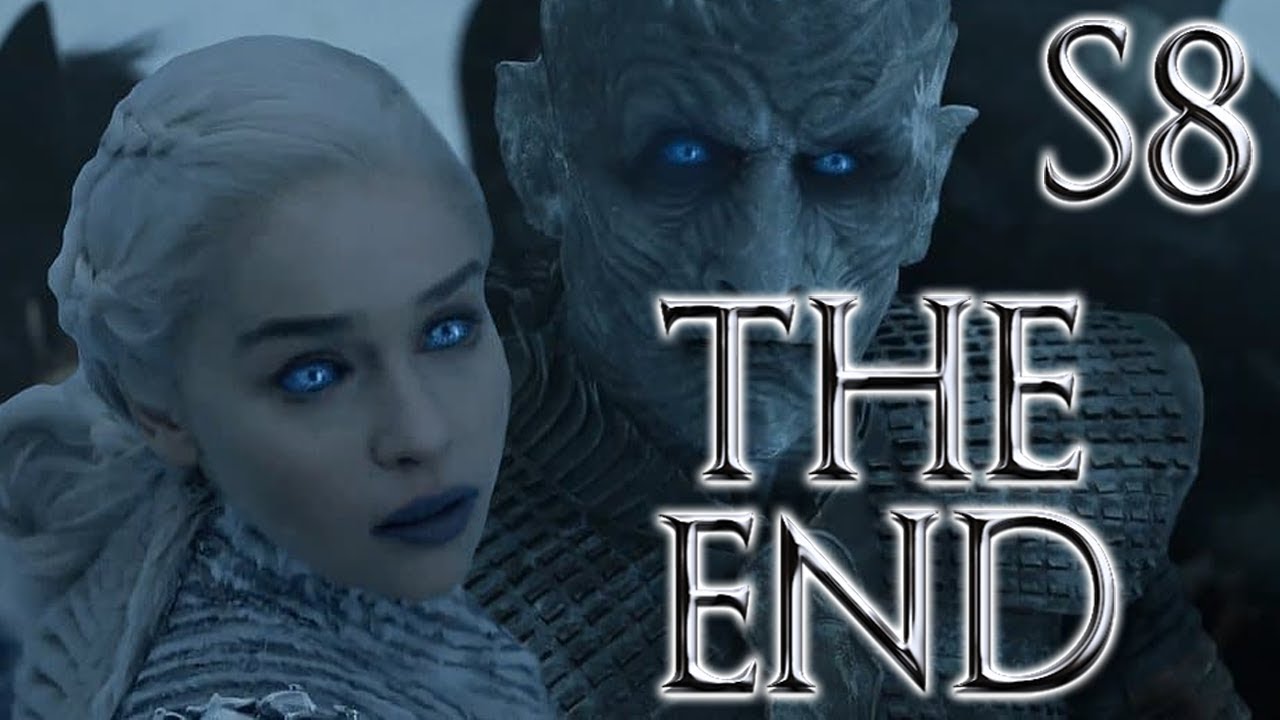The anticipation for the eighth and final season of “Game of Thrones” was immense. After seven seasons of intricate plots, shocking deaths, and unforgettable characters, fans around the globe were eager to see how the epic saga would conclude. However, as the six-episode season unfolded, reactions were polarized, with some praising the spectacle and others lamenting the story’s resolution.
A Season of Spectacle
One of the undeniable strengths of Season 8 was its visual grandeur. The production value reached new heights, with battles and special effects that were nothing short of cinematic. The Battle of Winterfell, featured in the episode “The Long Night,” was a testament to this. The sheer scale of the battle, the chilling darkness, and the intensity of the undead assault created a viewing experience that was both exhilarating and terrifying. Despite some complaints about the episode’s dim lighting, it remains a standout moment for its sheer ambition.
The series finale, “The Iron Throne,” also delivered some breathtaking visuals. The haunting image of Daenerys Targaryen standing before the ruins of King’s Landing, her dragon’s wings unfurled behind her, symbolized her transformation into the “Mad Queen.” The dragon melting the Iron Throne in a fit of rage and sorrow was a poignant and visually stunning moment that underscored the futility of the power struggles that had defined the series.
Character Arcs and Controversies
While the visuals were largely praised, the same cannot be said for the character arcs and plot resolutions. One of the most contentious points was the character development of Daenerys Targaryen. Throughout the series, she had been portrayed as a liberator and a breaker of chains. However, her rapid descent into madness and tyranny in the final episodes felt rushed to many viewers. Critics argued that the show failed to adequately build up to this drastic change, making it feel abrupt and unearned.
Similarly, the fate of Jon Snow left many fans dissatisfied. As one of the central characters, his journey had been fraught with challenges and revelations, including his true parentage. However, his ultimate role in the conclusion felt anticlimactic to some. His decision to kill Daenerys, though understandable, led to his exile beyond the Wall, a resolution that felt more like a return to the status quo than a fitting end for the “Prince That Was Promised.”
The fates of other key characters, such as Tyrion Lannister, Sansa Stark, and Arya Stark, also drew mixed reactions. Tyrion’s survival and eventual role as Hand of the King seemed improbable given his repeated failures in judgment. Sansa’s coronation as Queen in the North was seen as a triumph for her character, but Arya’s decision to explore unknown lands felt like an escape rather than a conclusion.
A Divisive Conclusion : Game Of Thrones
Ultimately, the final season of “Game of Thrones” was a testament to the difficulty of concluding a beloved and complex series. Showrunners David Benioff and D.B. Weiss faced the enormous challenge of tying up numerous storylines in a limited number of episodes. The result was a season that, while visually stunning and ambitious, often felt rushed and uneven in its storytelling.
The divisive reactions to Season 8 highlight the high expectations set by the show’s previous seasons. “Game of Thrones” had become renowned for its unpredictable narrative, deep character development, and willingness to subvert fantasy tropes. The final season, with its swift resolutions and controversial character decisions, left many feeling that it did not fully live up to the legacy it had built.
In retrospect, Season 8 of “Game of Thrones” is likely to be remembered as a mixed bag. For some, it was a spectacular finale that provided closure to the epic saga. For others, it was a disappointing end that fell short of the narrative brilliance that had defined the series. Regardless of where one stands, the final season undeniably sparked widespread discussion and ensured that “Game of Thrones” remained a cultural phenomenon to the very end.
Plot and Pacing: A Race to the Finish
One of the most significant criticisms of Season 8 was its pacing. With only six episodes to wrap up numerous storylines, the season felt rushed compared to the meticulously paced earlier seasons. Major events unfolded rapidly, leaving little room for character development or the nuanced storytelling that had been a hallmark of the series. The journey from Winterfell to King’s Landing, which had previously taken entire seasons, was compressed into mere episodes. This shift in pacing led to some jarring transitions and underdeveloped plot points.
Character Arcs: Triumphs and Controversies
Character arcs in Season 8 were another source of contention. Jon Snow (Kit Harington), Daenerys Targaryen (Emilia Clarke), and other key figures faced significant developments that elicited mixed reactions. Jon’s discovery of his true parentage and his subsequent internal conflict felt somewhat overshadowed by the overarching plot’s need to advance quickly.
Daenerys’ descent into madness was perhaps the most controversial aspect of the season. Once seen as a liberator and a breaker of chains, her sudden turn to ruthless destruction in the penultimate episode, “The Bells,” left many viewers feeling betrayed by the abruptness of her character’s transformation. While the seeds of her potential for tyranny had been sown throughout the series, the rapid execution of this narrative arc felt inconsistent with her previous portrayal.
The Battle of Winterfell: A Cinematic Spectacle
Despite the criticisms, Season 8 was not without its triumphs. “The Long Night,” the third episode, showcased one of the most ambitious battles ever depicted on television. The Battle of Winterfell was a visual and technical marvel, blending intense action with moments of profound character development. The episode’s lighting and cinematography, while controversial for some due to its darkness, added to the claustrophobic and chaotic atmosphere of the fight against the Night King and his army of the dead.
Arya Stark (Maisie Williams) delivering the killing blow to the Night King was a moment of immense satisfaction for many fans. Arya’s journey from a young girl to a skilled assassin culminated in this heroic act, highlighting her resilience and growth. However, some viewers felt that Jon Snow’s role in the battle was underwhelming, given his central involvement in the fight against the White Walkers throughout the series.
The Iron Throne: A Final Decision
The series finale, “The Iron Throne,” aimed to tie up the remaining loose ends and provide a resolution to the saga. The decision to have Bran Stark (Isaac Hempstead Wright) crowned as king was unexpected and polarizing. Bran’s journey as the Three-Eyed Raven had distanced him from the political machinations of Westeros, making his ascension to the throne feel disconnected from the power struggles that had defined the series.
The fate of other characters also sparked debate. Jon Snow’s exile to the Night’s Watch, Tyrion Lannister’s (Peter Dinklage) role as Hand of the King, and Sansa Stark’s (Sophie Turner) declaration of Northern independence were seen by some as fitting conclusions, while others viewed them as unsatisfying or inconsistent with previous character arcs.
For further insights on this topic, explore more blogs at : seriesspy.com

